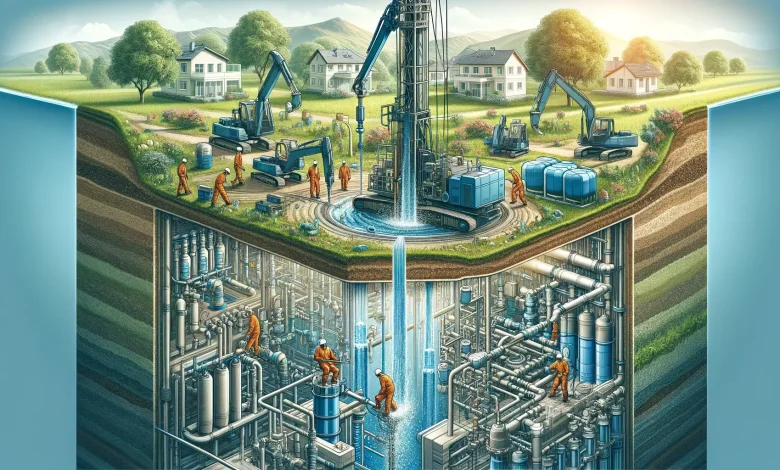Understanding the Benefits of Well Drilling for Sustainable Water Solutions

Access to clean and reliable water sources remains a critical need for households, particularly in rural or undeveloped areas where municipal water systems may not reach. Well drilling is an effective solution that can provide a consistent supply of water, ensuring sustainability and independence from public water systems. This post delves into the process of well drilling and explores the numerous benefits it offers homeowners seeking a private water supply.
What is Well Drilling?
Well drilling involves the process of boring into the earth to access water contained in underground aquifers. This method utilizes advanced drilling technology to reach depths where sufficient, potable water can be consistently drawn. The process requires expertise and precise equipment, typically handled by professionals who can assess the geology and determine the optimal depth and location for water extraction.
Key Benefits of Drilling a Well
- Reliable Water Supply: One of the most significant benefits of having a private well is the reliability it offers. Households can enjoy a continuous supply of water without depending on external sources. This is particularly advantageous in regions prone to drought or where water restrictions apply.
- Health and Safety: Well water often comes from aquifers that provide naturally filtered water. However, it’s crucial to have the water tested regularly to ensure it is safe from contaminants. Properly maintained wells can provide clean, healthy water for drinking, cooking, and bathing.
- Cost-Effectiveness: After the initial investment in drilling and setting up the well, the ongoing costs associated with drawing water from a well are minimal compared to paying for public water supply services. There are no monthly bills, and maintenance is relatively low, depending on the well’s construction and the local water table.
- Environmental Benefits: Using well water can be environmentally beneficial as it reduces the demand on municipal water systems and helps preserve the local aquifers. By managing your own water source sustainably, you can contribute to the conservation of water resources.
- Increased Property Value: Homes with their own private water supply often enjoy a higher market value. The independence and security of having a private well are attractive features for potential homebuyers, especially in areas where water access is a concern.
Considerations Before Drilling a Well
While well drilling offers numerous benefits, there are several factors to consider before undertaking this project:
- Regulations: Check local regulations and obtain all necessary permits before drilling. Different areas have different laws regarding water rights and well installation.
- Location: The location of the well must be chosen carefully to avoid contamination from septic tanks and chemical runoff. Professional well drillers can help determine the safest and most efficient placement.
- Water Quality and Maintenance: Regular testing and maintenance are crucial to ensure the water remains safe for use and the well’s equipment is functioning correctly.
- Cost: The cost of drilling a well can vary widely depending on the depth required and the geology of the area. It’s essential to get a detailed estimate and consider long-term maintenance costs.
The Process of Well Drilling
The well drilling process typically involves several key steps:
- Site Survey and Planning: Professionals perform a geological survey of the property to identify the best location and depth for the well.
- Drilling: Specialized machinery is used to drill down to the water-bearing aquifer.
- Installation of Casing and Well Cap: A casing is installed to support the well opening and prevent contaminants from entering. A cap is placed on top to secure the well.
- Pump Installation: A pump system is installed to bring water to the surface and direct it into a storage system or directly into the home’s plumbing.
- Testing: The water is tested for quality and safety, and adjustments are made to the system as needed.
Conclusion
Investing in well drilling can be a wise decision for homeowners looking for a reliable and independent water supply. Not only does it ensure access to potable water, but it also brings financial benefits and adds value to the property. With proper planning, installation, and maintenance, a private well is a sustainable solution that can serve your water needs for many years. Whether for drinking, agriculture, or daily chores, a personal well can significantly enhance your quality of life and give you control over your water usage.



